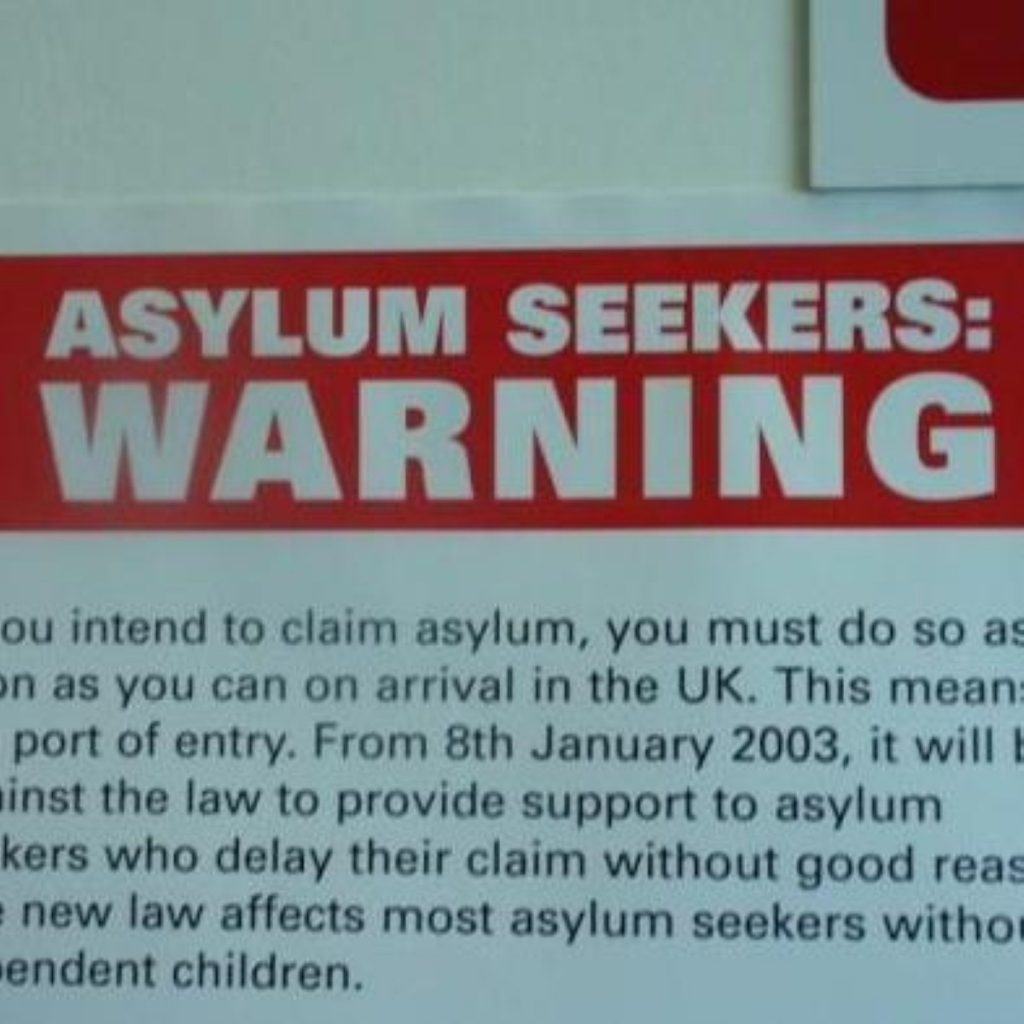Asylum policy under attack
Thousands of asylum seekers have been left destitute after changes to welfare rules excluded those who failed to apply for sanctuary within three days of landing on British shores, two reports claim today.
Reports by Refugee Council, Greater London Authority and Amnesty International say section 55 of the Immigration Act has had devastating effects.
The Greater London Authority’s “Destitution by Design” report – commissioned by Mayor of London Ken Livingstone claims around 10,000 people have been forced to sleep rough in London alone because of the new laws.
The GLA claims section 55 will lead to more people staying in London illegally.


Lee Jasper from the Greater London Authority told Channel Four News last night that local authorities were struggling to cope with the scores of poor people affected by section 55.
“The scale of destitution that is now peering in London is such that it is literally unacceptable and unmanageable.
“London boroughs just simply will not be able to cope, and that can’t have been the intended consequence of the Government in this regard.”
Keith Best, a spokesperson for the Immigration Advisory Service, said the Government’s policy was “ill-thought out and badly planned.”
Mr Best shared the sentiment that the impact of section 55 had been devastating.
“What we are seeing is massive destitution on a grand scale.
“It’s like the perversity of any legislation that’s ill-thought out and badly planned, as this is likely sadly so much in immigration and asylum policy these days, it’s having an opposite effect.”
Separately, human rights group Amnesty International says the Home Office is putting asylum seekers’ lives at risk by using inaccurate information to make judgements on who stays and who goes.
Amnesty International UK Director Kate Allen said: “Getting an asylum decision wrong is not like a clerical error on a tax bill or a parking fine. Wrongly refusing someone’s claim could mean returning them to face torture or execution.
“These are life or death decisions and the Home Office is getting one in five of them wrong.”
Amnesty in its report entitled “Get it Right: How Home Office decision making fails refugees,” the pressure group assessed more than 170 asylum refusal letters in 2003.
Amnesty is calling on the Home Office to improve training of asylum caseworkers and has spelt out 15 ways to get initial decisions right.
The immigration minister Beverley Hughes was quick to responded to the report: “The fact remains that the majority of asylum seekers reaching the UK are not genuine refugees – even taking into account those cases granted at appeal, 58 per cent of cases are found not to be in need of international protection.
“Good quality information for caseworkers about particular countries is obviously important and Amnesty reports are one of the range of sources we draw on. We have recently set up an independent panel of experts to advise us on how the quality of our country information can be improved, and Amnesty have been invited to participate in the group.
“We are also addressing one of the major barriers to good quality decision-making – the fact that the majority of asylum seekers have no documentation – with a range of measures including increased use of biometrics and new legislation.
“The quality of decision-making in asylum cases is a very important issue and I welcome the contribution the Amnesty report can make to the work we are already doing to ensure high quality decisions.”

